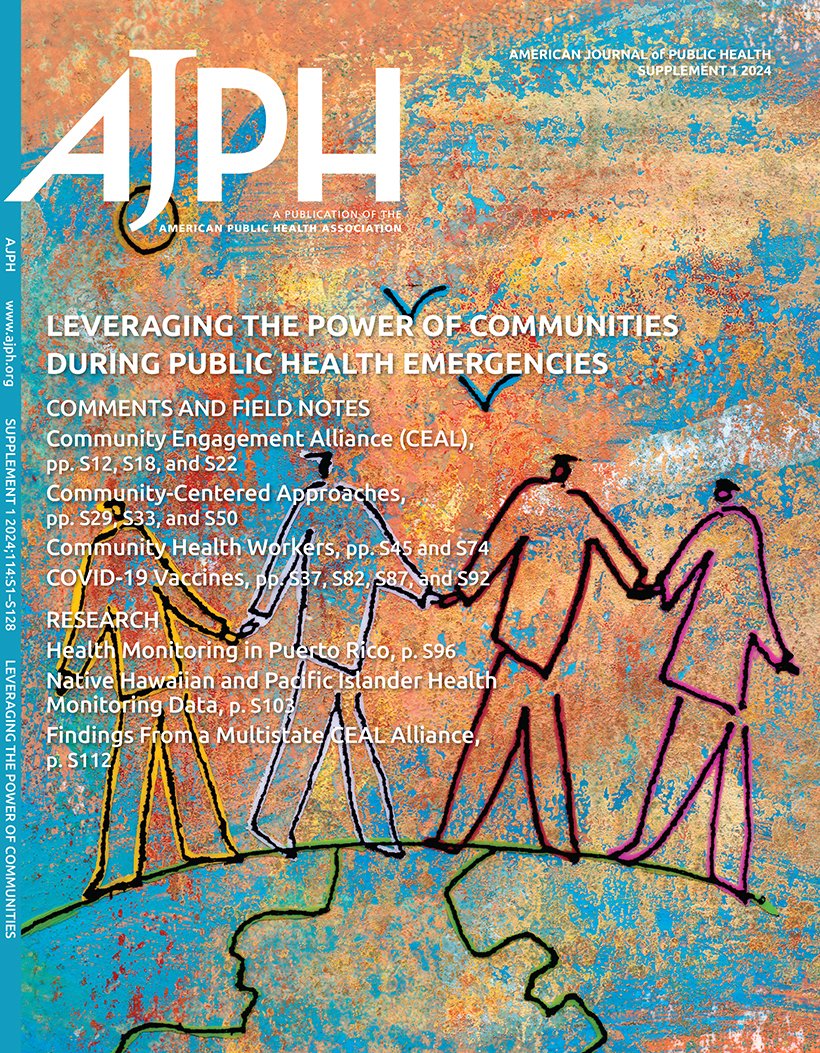Was the Allocation of COVID-19 Vaccines Globally Fair and Equitable?
IF 9.6
1区 医学
Q1 PUBLIC, ENVIRONMENTAL & OCCUPATIONAL HEALTH
引用次数: 0
Abstract
Determining whether an allocation is equitable requires ethical and empirical analyses, specifically answers to 3 questions: (1) What is the ethical standard for fair allocation? (2) What is the quantitative equity metric for this standard? and (3) What do the empirical data demonstrate? Two ethical standards for assessing the fair allocation of scarce medical resources have been delineated: the COVID-19 Vaccines Global Access initiative's population-based standard and the COVID-19 health-burden standard. The equity metric for the population-based standard is vaccine per person in each country, and for the health-burden standard it is vaccine per excess deaths per country. When using excess deaths data from the World Health Organization and vaccine data from the United Nations Children's Fund, the health-burden standard showed that middle-income countries with high excess deaths (e.g., Indonesia, Peru, Mexico, Egypt, South Africa) were treated inequitably: not provided enough vaccines given their high excess deaths. The right standard to assess fair and equitable allocation is a health-burden assessment. According to this standard, contrary to assumptions and initial claims, low-income countries were not treated inequitably in COVID-19 vaccine allocation, and middle-income countries with high excess deaths were treated inequitably. (Am J Public Health. Published online ahead of print May 15, 2025:e1-e10. https://doi.org/10.2105/AJPH.2025.308077).COVID-19疫苗的全球分配是否公平公正?
确定分配是否公平需要伦理和实证分析,具体回答3个问题:(1)公平分配的伦理标准是什么?(2)该标准的量化权益指标是什么?(3)实证数据证明了什么?已经确定了评估稀缺医疗资源公平分配的两项伦理标准:COVID-19疫苗全球获取倡议的基于人群的标准和COVID-19健康负担标准。以人口为基础的标准的公平指标是每个国家人均疫苗接种量,而健康负担标准的公平指标是每个国家人均额外死亡疫苗接种量。在使用世界卫生组织的超额死亡率数据和联合国儿童基金会的疫苗数据时,健康负担标准表明,超额死亡率高的中等收入国家(如印度尼西亚、秘鲁、墨西哥、埃及、南非)受到了不公平对待:鉴于超额死亡率高,没有提供足够的疫苗。评估公平和公平分配的正确标准是健康负担评估。根据这一标准,与假设和最初的主张相反,低收入国家在COVID-19疫苗分配方面没有受到不公平对待,超额死亡率高的中等收入国家也没有受到不公平对待。公共卫生。2025年5月15日在线出版:e1-e10。https://doi.org/10.2105/AJPH.2025.308077)。
本文章由计算机程序翻译,如有差异,请以英文原文为准。
求助全文
约1分钟内获得全文
求助全文
来源期刊

American journal of public health
医学-公共卫生、环境卫生与职业卫生
CiteScore
9.50
自引率
3.90%
发文量
1109
审稿时长
2-4 weeks
期刊介绍:
The American Journal of Public Health (AJPH) is dedicated to publishing original work in research, research methods, and program evaluation within the field of public health. The journal's mission is to advance public health research, policy, practice, and education.
 求助内容:
求助内容: 应助结果提醒方式:
应助结果提醒方式:


